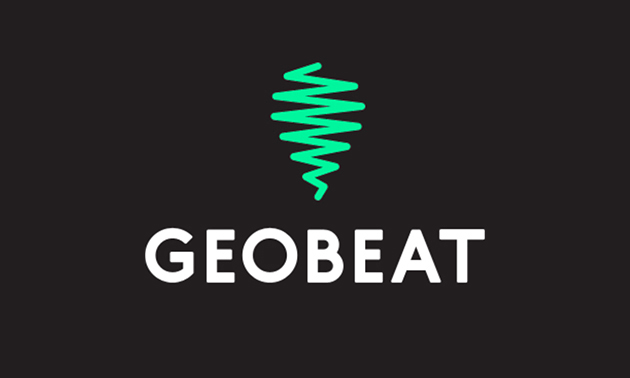MUSIC TECH STARTUPS: Geobeat, an App for Running with the Right Music

Artem Zhiganov is CEO at Geobeat, an app that lets users hear different tracks that change with how they are moving, where, and under what weather. Users can tell the app how they are moving, either walking or by car or bike, and any time they cross from an area to another, represented by hexagons, music will change.
«We have a few layers, at the moment, and we launched a landing page for producers who’d like to take part in the project. Many producers have already contacted us and some are willing to do something for free. We want to have at least 15 or 20 soundtracks in every city with a strong electronic music scene, we have a road map for Berlin, London, Los Angeles, Amsterdam and maybe Tokyo before the end of the year».
How do your soundtracks work?
«We have a soundtrack, or layer, that can be listened to anywhere, we call them omnipresent layers, and those are already in the app. They appear on the map around the location of the user when they launch the app, doesn’t matter where they try to listen to them, hexagons will appear around them.
There is also another layer, not omnipresent, attached to certain locations, certain geography or territory, you have to go somewhere or ride somewhere to listen to it.
Location-aware layers create soundtracks for the cities. And we believe it's going to be a great thing for a tourist for instance. You come to some new city and check out its electronic voice while moving around».
Are you planning on adding more layers?
«We have a problem, we have to put all content inside the app. It weighs too much, 200 MB, and ios doesn’t allow you to download an app without the wifi if it weighs more than 100 MB. It’s a problem because we want to be distributed in the parks for instance. We hope to solve this soon».
Who did you have in mind when you decided to create this product?
«Urban athletes (primarily runners, but also extreme guys), music enthusiasts (because it's a relatively new musical form after all), tourists and early adopters (because it's a killer app for wearables with sensors like Bragi headphones)».
How does the app recognize my pace etc? Are there variables users can actively change?
«No, we use dark sky API to get the weather information. Speaking of pace, we use Apple CoreMotion technology to get this kind of data automatically, but you have to choose your current type of movement, because it's more difficult to understand if you are running or are slowly riding a bike, and the music should be different in these cases. So that's the only thing a user should do. Luckily we have a couple of good programmers on board».
Going back to the layers, do I choose the one I want to hear or is that automatic, too?
«Yes, you have to choose the layer from the list. We'll probably add the option to switch omni-present layers when you leave their boundaries though (currently the same one is replicated), so that you could listen to everything without looking at the screen».
The app is free. How do you plan on earning from it?
«Definitely not ads. We're planning to sell subscription for omni-present premium layers (the ones from famous producers), so that you could check them out from anywhere on the planet, but all location-based layers will be free. If you physically come somewhere, that's already an effort, and we appreciate it.
Another revenue stream is special projects for brands, primarily sports and mobility related. We're also in negotiation with a large Moscow park, they want to sell our technology to their sponsors».
Do you think that raising funds is the most difficult thing with being a startup?
«We don't want to try and persuade someone with only a pitch deck, even a prototype wouldn't cut it, considering that music startups die in the vast majority of cases. Btw we think that the risk is lower for us, because we don't use tracks (i.e. the only popular form of recorded music) and we don't have to license the catalogues from Sony, Universal and Warner.
I think the most difficult thing is getting the right people for the team. I feel very confident about my co-founders, so the biggest problems for us are fundraising and user acquisition».
What kind of help do incubators or labs give to startups like yours? What kind of help is the most beneficial in your opinion?
«We think that our main priority is filling the platform with content, so for us the biggest help would be connecting us to electronic labels, paying royalties to producers, solving all the IP issues, etc. Also we would appreciate any help regarding entering the aforementioned cities, like setting up local offices, connecting us with city administrations, parks».

